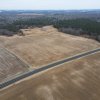Many residents of the Cape Region, including the folks at Mill Pond Garden on Red Mill Pond, enjoy feeding garden birds.
Some wonder when to stop feeding when spring comes. The correct answer is to stop feeding garden birds about one or two weeks after deciduous canopy foliage, particularly oak tree leaves, are fully open, when baby birds are fledged and food caterpillars are in peak abundance. For the Cape Region that would be about May 15 to June 1.
Feeding adult birds through winter, egg laying and hatchling growth up to fledging and a bit beyond is beneficial, and it helps more breeding birds and baby birds survive.
Birds stop feeding their babies anywhere from three days to two weeks after fledging. During that newly fledged time, some extra food helps the adult that is feeding caterpillars to the babies, until they get the idea to hunt them on their own. Having the caterpillars consumed by birds helps keep oaks and other trees from being decimated by the spring abundance of leaf-feeding caterpillars.
Beyond that, feeding bird feeder seeds to the new crop of young birds might keep them from developing their hunting skills and experience. After June 1, the birds need to revert to the abundance of nature and not to home feeders, for their own good.
It is recommended not to resume feeding garden birds until mid-December locally, or after first snowfall or several deep freezes. There is an abundance of wild seeds in fall and early winter as well as overwintering bugs that birds hunt out. Snow and ice can make those natural sources unavailable, and that is when your help with a seed feeder, and even better a suet feeder, most important.
The goal is to help birds over the period of scarcity without interfering with their natural adaptations to existing food supplies.
The biggest help to garden birds is not to let cats run outdoors. Cats kill an estimated 1.4 billion to as many as 3.7 billion birds each year.
The other big threat to birds is pesticides, both used on farms and ones commonly sold to homeowners. The most damaging are the neonicotinoids that destroy butterflies, bees, bumblebees, pollinators and birds. Gardeners can help by ceasing to use these chemicals and opposing their use in agriculture and pest control.
Many years ago, conservationist Rachel Carson sounded an alarm about human impacts on the natural world with her book “Silent Spring.” Its title alluded to the loss of twittering birds from natural habitats because of indiscriminate pesticide use. Its publication spawned the modern conservation movement.
New research from Cornell University shows bird populations have continued to plummet in the past 50 years, dropping by nearly 3 billion across North America – an overall decline of 29 percent from 1970. Ken Rosenberg, the study’s lead author and a senior scientist at the Cornell Lab of Ornithology and the nonprofit American Bird Conservancy, says the magnitude of the decline could significantly affect the continent’s food webs and ecosystems. “We’re talking about pest control; we’re talking about pollination [and] seed dispersal,” he said, referring to the roles birds play in ecosystems. Based on the paper’s results, he said, “We can be pretty sure that other parts of the ecosystem are also in decline and degradation.”
The good news is that because of homeowners feeding the year-round resident, nonmigratory, garden birds, their numbers are holding up well so far. Gardeners can all do their part to save birds and pollinators by making better choices in their home gardening, and in speaking out.
Mill Pond Garden is a small public garden near Nassau on Red Mill Pond, open only by appointment during the state quarantine mandate. The garden can be visited by free virtual video and photo tours, available free to subscribers at www.millpondgarden.com. The garden is a certified federal and state nonprofit organization dedicated to holistic and nature-friendly gardening, providing inspiring examples, education and horticultural advice to the Cape Region and the general public.
























































